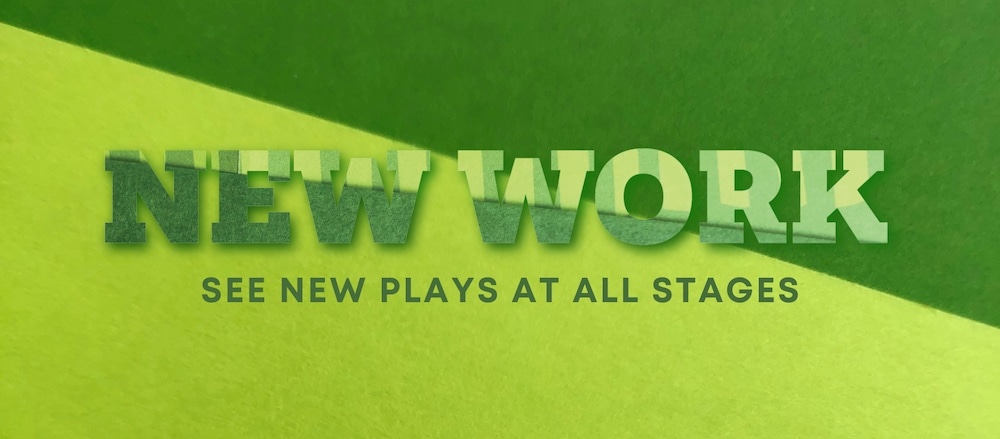There was not an empty seat in the house.
On stage, seven musicians fiddled, fingered, and strummed, all under the direction of an award-winning composer who conducted while playing one of the keyboards.
Waving an invisible baton, Emmy and Grammy Award winner John McDaniel—whose credits include Annie Get Your Gun, Chicago, and Company—pulled together the sounds of percussion, accordion, clarinet, and strings, while the actors, who were musical comedy stars, sang along.
At the end, the audience rose and roared its approval, shouts of “bravo” bouncing off the walls.
The walls, however, were not located at the Kennedy Center, nor were the ticket prices likely to put a dent in anyone’s budget. In fact, the show I’m describing—Max and Willie’s Last Laugh, which launched Mosaic Theater’s Catalyst Festival of New Plays last month—was a workshop.
In theater parlance, that means a play that’s still in the process of development. It’s a reading, in which the actors are holding scripts while the playwrights and director, collectively, hold their breath. All are waiting to hear, from the audience’s reaction, what works.
And judging by the performance I saw—the second of two in Caffritz Hall, a space located in the basement of the Edlavitch Jewish Community Center—nearly everything does.
Broadway veterans Jason Graae and David Turner delivered star-quality turns as Max and Willy, the two Holocaust-era cabaret singers who managed, for 18 months, to sing and joke their way out of deportation to Auschwitz, the most final of the Nazis’ final solutions.
Regional diva Awa Sal Secka, whose big voice has actually rocked the rafters at the Kennedy Center (and Ford’s and Signature and Studio), brought the house down with a glorious—and suitably raunchy—rendition of “Bei Mir Bistu Shein.” (The song was written in 1932.)
Harrison Smith, another local actor who has graced the stages of Keegan and Round House, invoked recent events when, as the Gestapo commander, he snarled, “We will replace you.”
It was a chilling reminder that the threats of the play, while set in Nazi-occupied Holland in 1944, are similar to those of today.
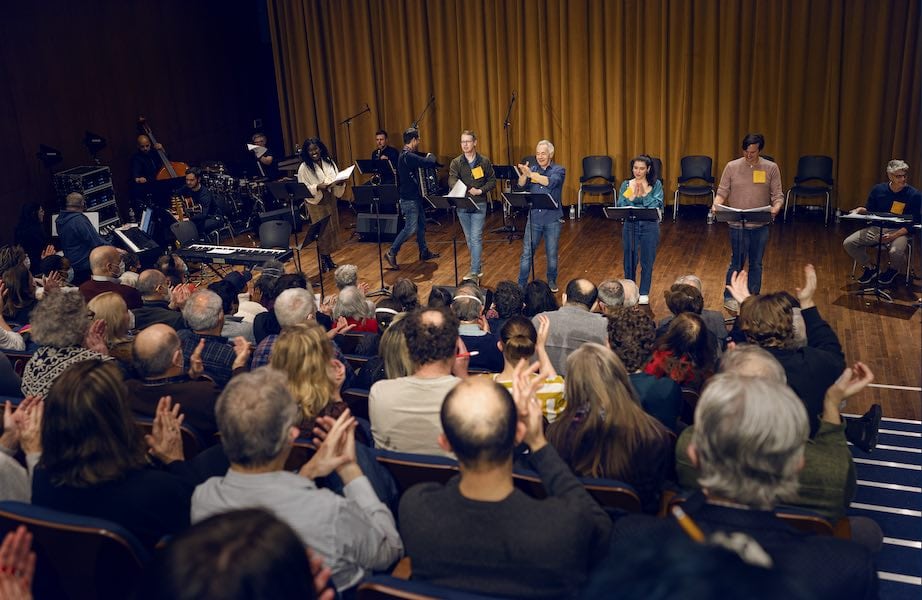
“History repeats itself,” said Jake Broder, half of the award-winning writing-and-acting team that created the musical based on the real-life characters. “Think about the Neo-Nazis wearing ‘Camp Auschwitz’ T-shirts at the Capitol Insurrection.”
Conor Duffy, the other half of the creative team, agreed. “The theme of oppression is universal, as is the need to fight back. But the play is also about the role of comedy in survival.”
I caught up with the two men in a telephone interview from their home base in Hollywood, where Duffy filled me in on the “real” Max and Willy and how their work survived.
“Five years ago, I came across an article in the Los Angeles Times, outlining the true story on which Max and Willy is based,” he said. Astounded, he immediately enlisted Jake—a longtime colleague—who agreed to collaborate on the research and writing of a new musical play.
It took a year of digging, but they found what they wanted in Amsterdam. To their astonishment, it was a complete script of Max and Willy’s last show, full of jokes, insults, and the lyrics of their songs, smuggled out of the Westerbork Dutch camp by the son of one of the performers.
To find the music, they scoured videos of the Shoah Foundation, coming across fragments of melodies remembered by some of the survivors. Combined with recordings made from radio and cabaret appearances, there was enough to reconstruct a semblance of the actual scores.
Ironically, Max and Willy had enjoyed more than 20 years of show business success in Berlin. Max was a cousin of film director Ernst Lubitsch and a co-star of Marlene Dietrich’s, yet neither he nor Willie could get the required immigration papers. Both were rounded up with other Dutch Jews and dumped at Westerbork, where they were invited, by the Gestapo commandant, to put on a weekly show and thus avoid certain death.
They managed to do it for 18 months. And then they stopped.
“That last show was an act of revenge as well as a form of self-destruction. They ridiculed the Nazis,” said Broder, adding that in TV, that’s known as “suicide by cop.”
“On television, you know that if you taunt a cop, he’ll shoot. The same is true when you attack the system; you force the system to destroy you,” he said. “Max and Willie decided to go out with a bang. Our play asks the question, how did they get to that point?”
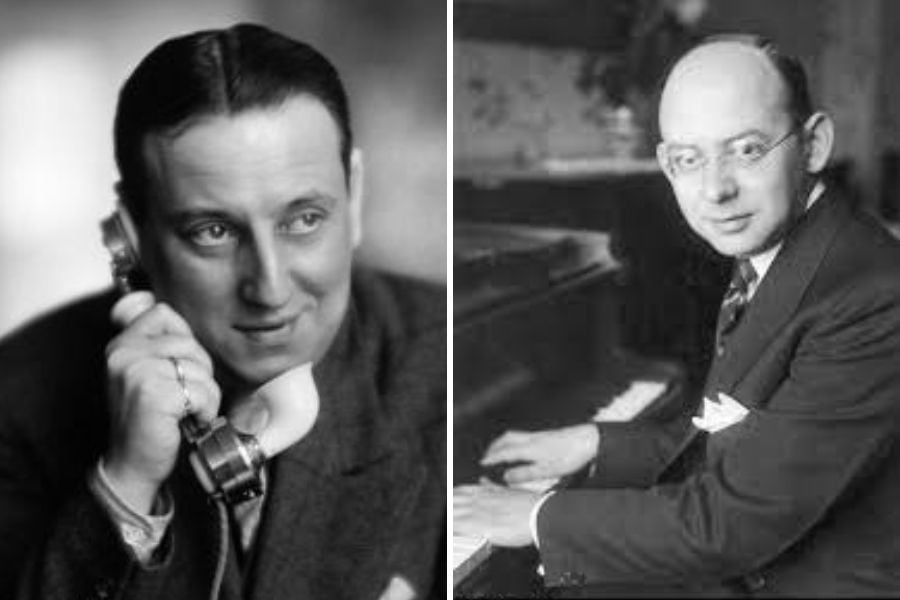
Max and Willy is not a polemical play, according to Broder—“It’s way too funny for that”—but the characters do use comedy as a sword. “It’s about protest,” he pointed out.
The play had its first workshop in 2019 at UCLA. Although the play seemed close to production, the pandemic put a stop to those plans. Broder and Duffy continued tinkering with the script until last fall, when, to their delight, Sheryl Kaller signed on as director and brought it to Mosaic.
With only 10 days in which to pull the show together, the two made changes every day, up to and including the final day of performance.
But it was worth it, Duffy wrote, after returning to LA. “It’s invaluable for us, as playwrights, to have an audience experience our work-in-progress. We couldn’t have asked for more engaged and astute houses than we had in DC.”
One of the most exciting moments of the run came when a member of the audience tried to sneak out to go to the restroom. Graae and Turner, already in character, delivered a brilliant bit of improv that left the audience gasping with laughter.
“Our next goal is to get this show on its feet in a first full production,” Duffy concluded, though they don’t know yet where or when that will happen.
Hopefully, it will be at Mosaic, where Reginald L. Douglas (“Reg”) is now the theater’s full-time artistic director. For him, staging the Catalyst Festival was a dream come true.
“New plays have been the foundation of my career,” he told me in a telephone interview just before the opening. The Festival, he added, was a chance to pull together local and national talent, and to connect past and present, history and quasi-scientific fantasy.
It was also a follow-up to the success of The Till Trilogy, in which Mosaic teamed with more than 25 local organizations, including the JCC and the DC public libraries.
“I was really focused on resurrecting the audience that disappeared during the pandemic,” he explained. “I wanted to make sure that we started with new work, and that we were able to forge a link between artists and audiences.”
In addition to revisiting the horror of the Holocaust—an endeavor in which Mosaic worked closely with the U.S. Holocaust Museum—the festival included a range of other events, most of them free.
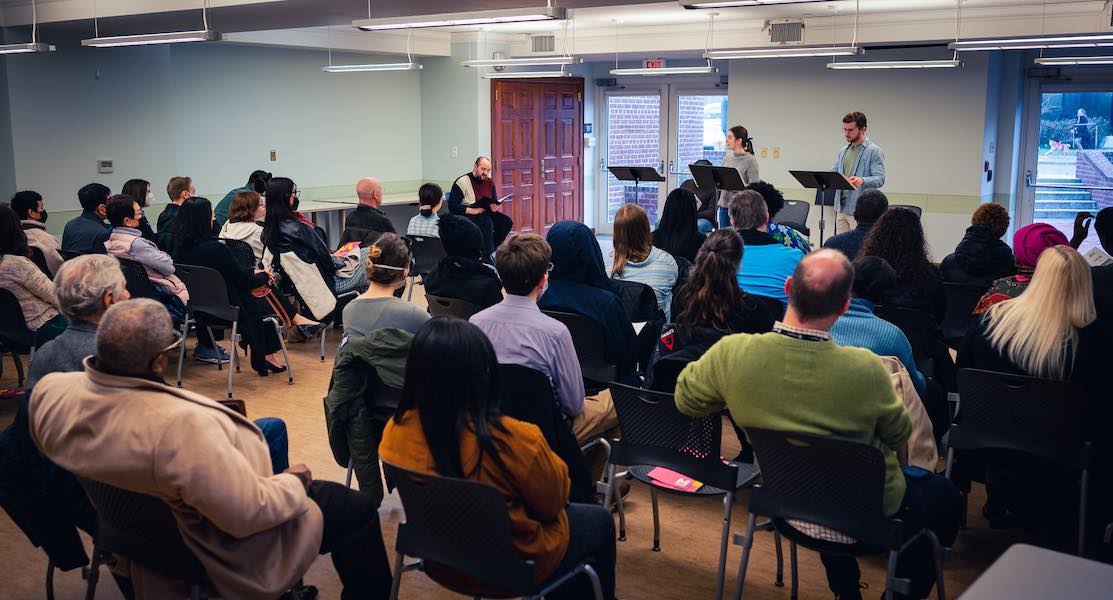
Included were a play about climate change (On the Invention of Seeds by Annalisa Dias), a panel discussion by women playwrights, readings of the winning entries in Mosaic’s annual High School Playwriting contest, and a play on the effects of the pandemic itself.
The latter—described by Douglas as “sexy, funny, full of music and love”—was a workshop production of Between/Time: A Baltimore Cycle Play, a new work by Lady Dane Figueroa Edidi. It was staged at the Atlas Performing Arts Center on the final day of the festival.
Edidi, who is an award-winning playwright, actor, and choreographer, both authored and is one of the protagonists in the play, which is set in Baltimore during the pandemic.
“I was inspired by all the stories of people singing to each other from their balconies and open windows,” she said as we chatted over the phone. The phenomenon, which began in Italy and then spread to New York and other cities, came out of a need to reconnect.
“People were dying of COVID. There was terrible uncertainty about the future, about what could happen, what COVID could do.”
At the same time, Edidi herself was going through an odd crisis. She had just won the Helen Hayes Award for her play Klytmnestra: An Epic Slam Poem, produced at Theater Alliance in 2019. But she couldn’t celebrate since the world was in quarantine.
“For me, there was a huge dichotomy. Events in the world were bad, but events in my life were good!”
As a result, she decided to write a love story, one in which two people, both in their separate isolated worlds, connect by speaking to each other through their open windows.
“It’s about their simultaneous yearning for joy and a way to connect. And it was my way of creating something positive out of the negativity of the lockdown,” she said.
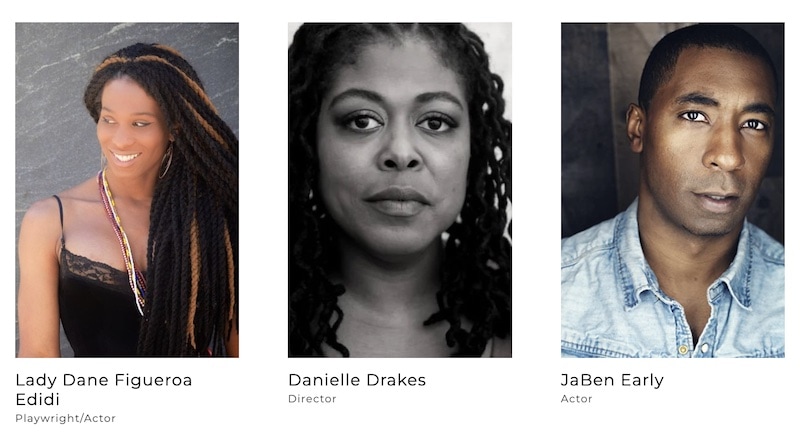
The play had its first reading in 2021, at the Bay Street Theatre, then came to the attention of Mosaic through her role in the H Street Oral History Project.
A trans performance artist, Edidi is the founder and head of the Inanna D Initiative, a theater company that takes pride in its use of trans artists and characters in all its productions.
“There is magic in the theater,” she concluded. “Theater helps us to imagine new worlds. At its core, theater has a role, and that is to be in the forefront of change. Commercial theater lags behind. But here in DC, we’re working for more representation and participation for trans artists in the community as a whole.”
And that’s a suitable coda for a festival aimed to be a catalyst for change.
Mosaic Theater’s first-ever Catalyst New Play Festival took place from January 19 to 22, 2023, with events held at the Atlas Performing Arts Center, the DC Public Library, and the Edlavitch Jewish Community Center of Washington, DC. For information about future Mosaic events, contact the box office at 202-399-7993×5011, e-mail [email protected], or visit mosaictheater.org/.
Luckily, the Washington area is awash in readings and workshops. (See Debbie Minter Jackson’s wonderful roundup of readings presented at the Ford Theatre’s First Look Festival, then check out DCTA’s new calendar of readings and workshops in the DMV.)
SEE ALSO:
Mosaic launches inaugural Catalyst New Play Festival January 19–22 (news story December 28, 2022)


